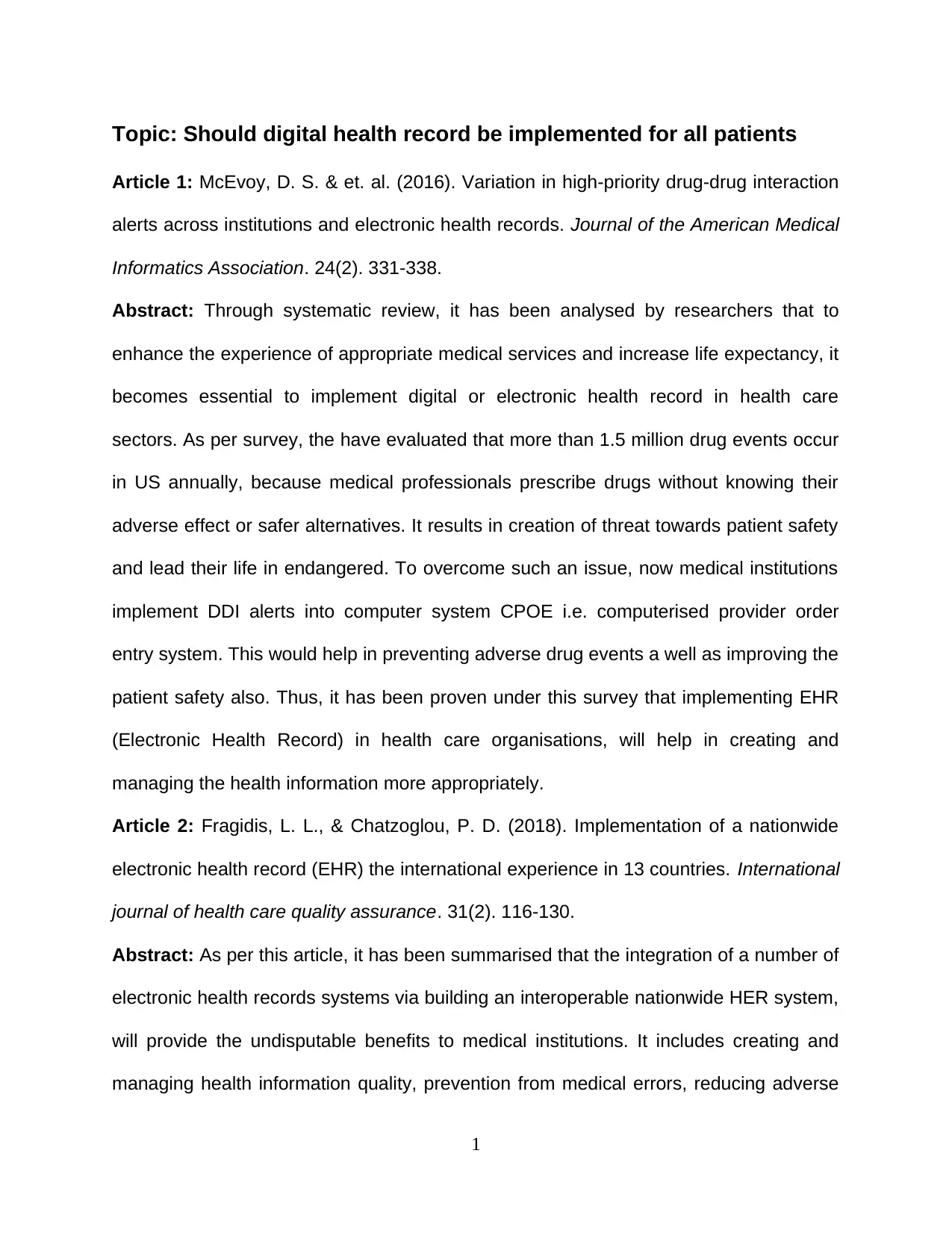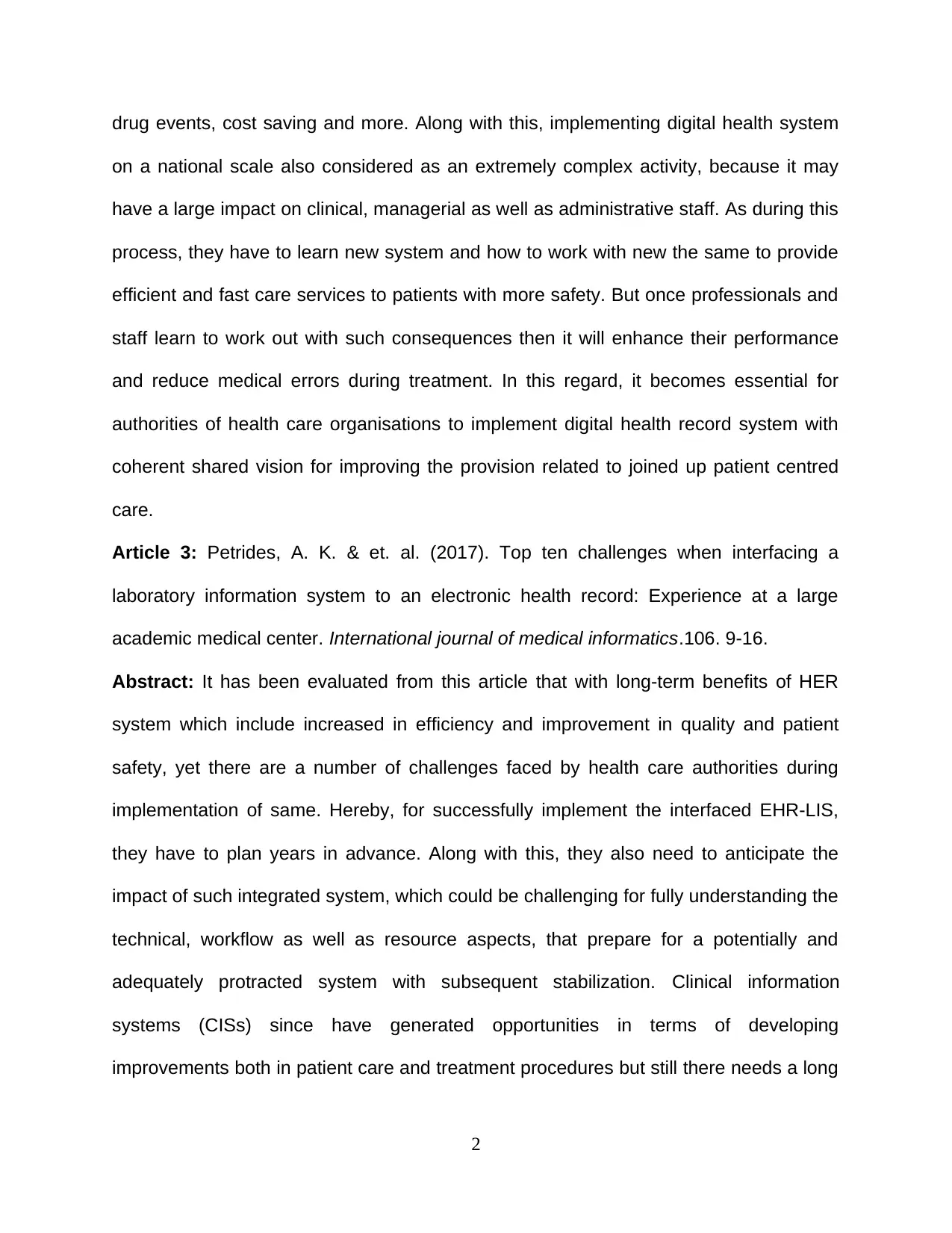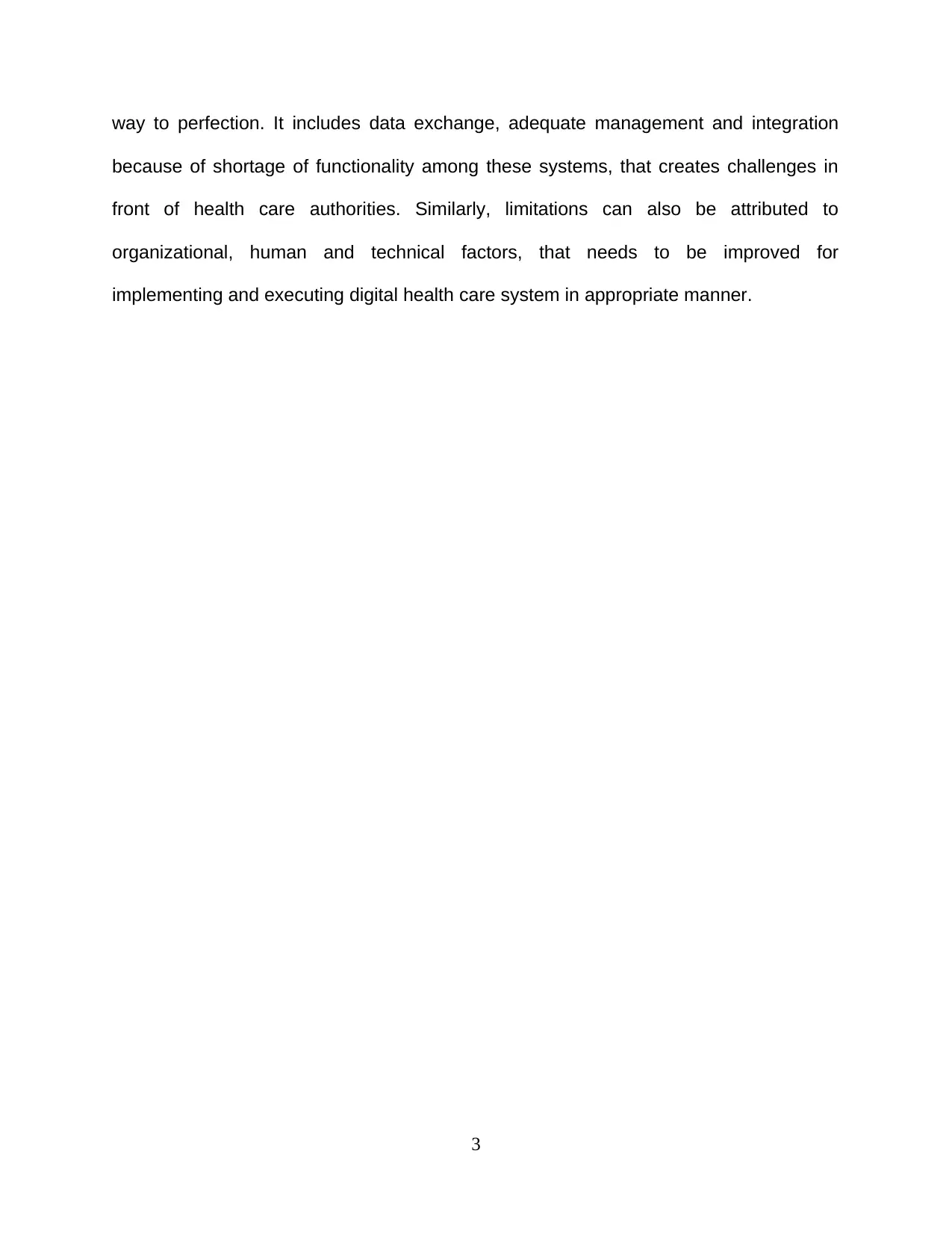Annotated Bibliography: Digital Health Records Implementation
VerifiedAdded on 2021/02/21
|5
|712
|39
Annotated Bibliography
AI Summary
This annotated bibliography explores the topic of digital health record (EHR) implementation, focusing on whether it should be implemented for all patients. It analyzes three articles that discuss various aspects of EHRs. The first article highlights the importance of EHRs in preventing adverse drug events and improving patient safety through drug-drug interaction alerts. The second article emphasizes the benefits of a nationwide EHR system, including improved health information quality, reduced medical errors, and cost savings, while also acknowledging the complexities of implementation and the need for a shared vision. The third article discusses the challenges faced during EHR-laboratory information system integration, emphasizing the need for long-term planning and addressing technical, workflow, and resource aspects. The bibliography underscores the potential of EHRs to enhance healthcare efficiency, quality, and patient safety, while also acknowledging the need to address the challenges associated with their implementation.
1 out of 5












![[object Object]](/_next/static/media/star-bottom.7253800d.svg)